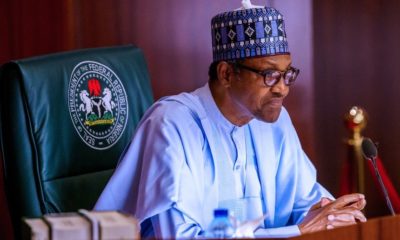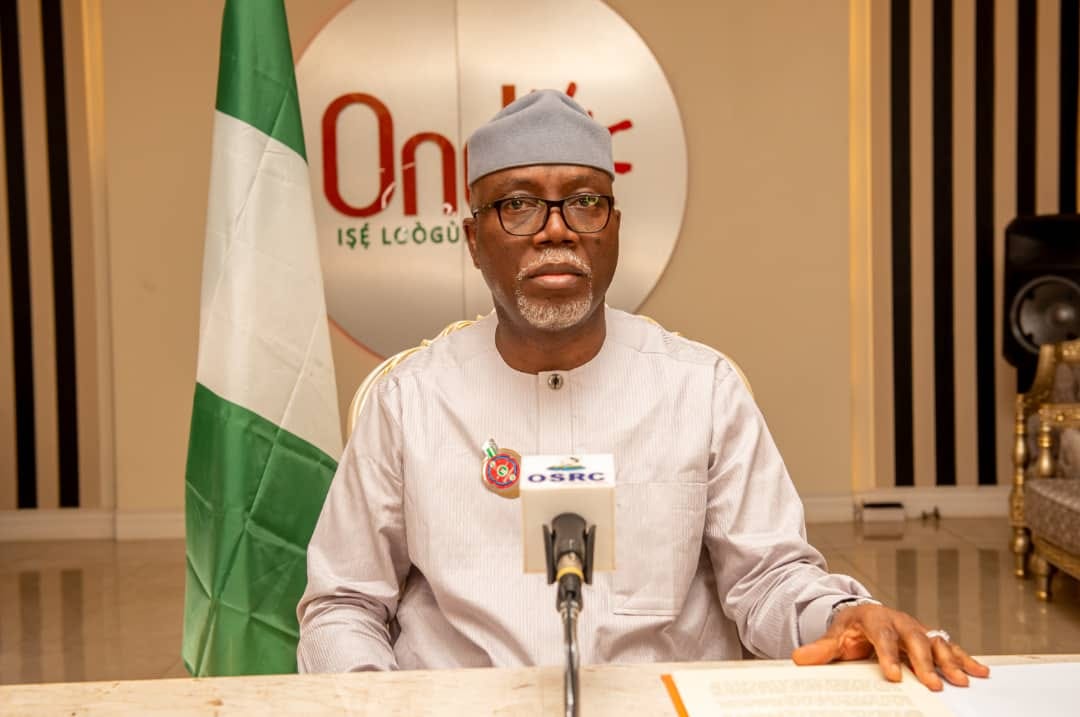Southern Leaders Say Enough is Enough, Drags Buhari to Court
Sixteen Southern leaders have dragged President Muhammadu Buhari to court over lopsided appointments and developments in the country.
In the suit filed on Monday, Chief Mike Ozekhome (SAN), the counsel to the plaintiffs, alleged that since the inception of this administration in 2015, the president appointments have contravened the provisions of the 1999 Constitution and the Federal Character Principle.
The 16 southern leaders in the suit marked FHC/ABJ/CS/595/2020 include Chief Edwin Clark, Chief Reuben Fasoranti, Dr. John Nnia Nwodo, Dr. Pogu Bittus, Chief Ayo Adebanjo, Alaowei Bozimo, Mrs Sarah Doketri, Chief Chukwuemeka Ezeife and Air Commodore Idongsit Nkanga.
Others are Senator Kofoworola Bucknor-Akerele, Prof Julie Umukoro, Elder Stephen Bangoji, Alhaji Tijani Babatunde, Mrs. Rose Obuoforibo, Mr Adakole Ijogi and Dr. Charles Nwakeaku.
They are alleging that the Southern region has been deliberately short-changed by the current administration.
In the suit filed through a consortium of lawyers, comprising of 10 Senior Advocates of Nigeria led by Chief Solomon Asemota (SAN) and Chief Mike Ozekhome (SAN), the plaintiffs are praying the court to determine:
“Whether the power to appoint designated public officers including permanent secretaries, principal representatives of Nigeria abroad, which is vested in the 1st Defendant has been lawfully exercised by him since the inception of his administration from 2015 till date and Whether his actions are in breach of Sections 171(5), 814(3) (4) of the 1999 Constitution (as amended).
“Whether the power to appoint Nigeria’s Armed Services Chiefs, other Commanders or top officials of the respective Armed Forces Higher and High Commands’ General Staff; namely the Chief of Defence Staff (CDS), Chief of Army Staff (COAS), Chief of Naval Staff (CNS) and Chief of Air Force Staff (CA8); the other statutorily established Nigerian National Security agencies or services , namely: The Inspector General of the Nigerian Police (1GP), the Directors General (DGs) of the State Security Service (SSS), National Intelligence Agency (NIA) and the Defense Intelligence Agency (DIA); the Heads of National Security Associated Federal Government (FG) establishments, namely the Nigerian Civil Defence and Security Corps (NCDSC), Economic and Financial Crimes Commission (EFCC), the Nigerian Customs and Excise Service, the Nigerian Immigration Services (NIS), the Nigerian Correctional Services (NCS), the National Emergency Management Authority (NEMA), the National Youth Service corps (NYSC), the National Security Adviser (NSA), the Ministers of Defence, Interior, Police and the respective National Security ministries’ Permanent Secretaries’ which is vested in the 1st defendant, has been lawfully exercised by the 1st defendant since the inception of his administration and whether these appointments are in compliance with 81(2), 814(3)(4), 8217(3) of the 1999 Constitution (as amended).
“A declaration that because the 1999 Constitution (as amended) is not suspended; it must be obeyed and adhered to.
“A declaration that Nigeria is a federal system of government, with federating states, and a Federal Capital Territory in accordance with Section 2(2) of the 1999 Constitution (as amended). Therefore, any system of governance operated contrary or inconsistent with the provisions of the 1999 Constitution (as amended) shall be deemed unconstitutional or illegal.
“An order of perpetual injunction restraining the Defendants, whether by themselves, servants, agents and/or privies, howsoever, from further appointing persons from only favoured sections of the country as Heads of key government positions and security and quasi security agencies of Nigeria to the detriment and exclusion of other sections of the country.
“An order of perpetual injunction restraining the Defendants, whether by themselves, servants, agents and their privies howsoever, from further violating the Public Service Rules 2008 and Armed Forces Act 2004 by extending tenures of personnel who have reached retirement age in accordance with the law.
“An order directing the 1st Defendant to forthwith revert the lopsided appointments complained about in the security and quasi security agencies and immediately take steps to appoint persons from other states and geopolitical zones, in line with the provisions of the 1999 Constitution (as amended) of the Federal Republic of Nigeria, as amended.
“An order directing the 1st Defendant to forthwith reverse the lopsided appointments made in the public service, diplomatic service and other principal Representatives of Nigeria abroad.
“An order suspending any further admission of Africans into Nigeria without e-visas, the requisite visas or e-migrant visas, until the adequate border control guidelines, training and bilateral reciprocity and waivers are agreed upon”.
They, therefore, urged the court to award N50 billion against the defendants to represent punitive, aggravated and exemplary damages to the constituents of the plaintiffs for the illegal, wrongful discriminatory and unconstitutional acts committed by the 1st defendant against the people of the plaintiffs’ states and geopolitical zones.


 News3 weeks ago
News3 weeks ago
 Business3 weeks ago
Business3 weeks ago
 Technology3 weeks ago
Technology3 weeks ago
 Investment3 weeks ago
Investment3 weeks ago
 Banking Sector3 weeks ago
Banking Sector3 weeks ago
 Banking Sector3 weeks ago
Banking Sector3 weeks ago
 Appointments3 weeks ago
Appointments3 weeks ago
 Investment3 weeks ago
Investment3 weeks ago


























